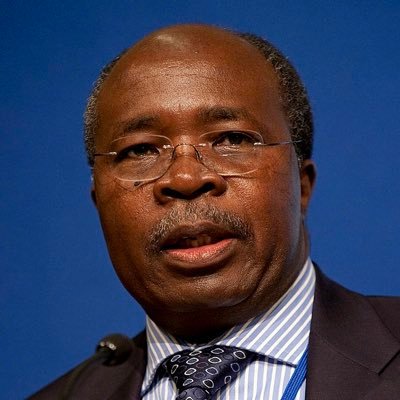– Musokotwane says Govt will continue with reforms
KABANDA CHULU
Washington
MINISTER of Finance and National Planning Situmbeko Musokotwane says Zambia will continue implementing effective fiscal economic reforms and good governance practices to ensure the country gets back on a positive trajectory.
Dr Musokotwane was commenting on projections made in the World Economic Outlook released on Tuesday by International Monetary Fund (IMF) economic counsellor and director of research Pierre-Olivier Gourinchas at the Spring Meetings.
Zambia and other sub-Saharan African countries are projected to record growth of between 3.8 percent and over four percent next year.
Dr Musokotwane said Government will continue strengthening the unfolding economic landscape being experienced in the country.
“Despite the positive gains within a short period of just two years after our New Dawn administration took office, we will not relent and relax,” he said. “The time is now to start the real work of restoring economic growth, hence our resolve and focus on implementing robust fiscal and effective economic reforms, coupled with prudent management of resources and good governance practices to ensure quick recovery.”
Dr Musokotwane says Zambia has made good progress in concluding a marathon debt restructuring and is confident of soon striking agreements with its remaining creditors.
“We expect the deal to be done in months,” he said in an interview with Bloomberg Television on Tuesday in Washington. “I am very confident that we have made a lot of progress.”
Zambia has so far struck deals to revamp US$10.1 billion of its liabilities, including with official creditors and Eurobond investors.
It has US$3.3 billion remaining owed to commercial creditors, including China Development Bank and Industrial and Commercial Bank of China Ltd.
Dr Musokotwane told Bloomberg that a recent visit to China by a delegation from Zambia had been “extremely productive”.
Zambia’s deal to revamp US$6.3 billion of its official debt — about half of which China holds — saw it push out repayment schedules by years and on lower interest rates. The creditors did not take a haircut, or reduction of value, on any of their principal investment.
On the other hand, holders of Zambia’s US$3 billion in outstanding dollar bonds — or US$3.8 billion if past-due interest is included — agreed to take a 26 percent haircut on what Zambia owed them in return for getting much of the remaining money paid back sooner than the official creditors, as well as higher interest rates.
And IMF says it remains committed to supporting Zambia and other sub-Saharan African countries to navigate through climate shocks causing drought and other negative impacts on economies and people.
President Hakainde Hichilema on Wednesday appealed to local and international partners to help finance the over K23 billion needed to mitigate the impact of drought in the country that has adversely affected 9.8 million people.
IMF spokesperson Julie Kozack has noted that over the last several years and decades, an increased frequency of climate shocks has intensified globally.
“And Africa has been particularly hard hit by these climate shocks, and we see this, of course, happening now with these droughts in Zimbabwe, Malawi, and Zambia,” she said.
“The IMF remains committed to supporting sub-Saharan African countries. These successive shocks, including climate shocks, have underscored the importance of the IMF’s role as an essential component to sub-Saharan Africa’s safety net, particularly for countries with limited policy buffers.
“Since the beginning of the COVID-19 pandemic in 2020, the IMF has provided almost US$58 billion worth of financing to sub-Saharan Africa, most of
it on highly concessional terms [favourable loans with longer grace period]. And with respect to supporting countries building resilience to climate shocks, there are currently nine countries in sub-Saharan Africa that have arrangements approved under our resilience and sustainability facility.”
The countries on the facility are Benin, Cape Verde, Cameroon, Côte d’Ivoire, Kenya, Niger, Rwanda, Senegal and Seychelles.
“And we have received many more requests for support under this instrument, and we will continue to work with countries,” Ms Kozack said.


